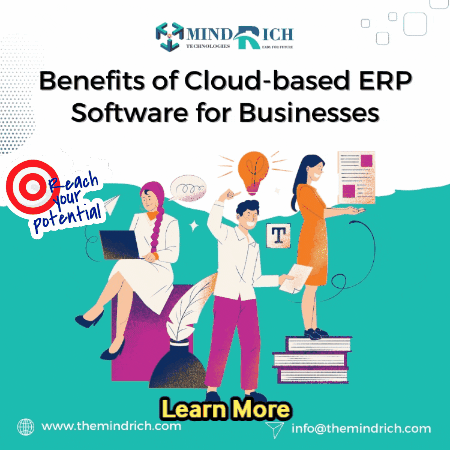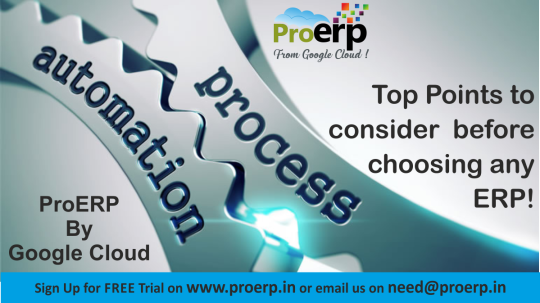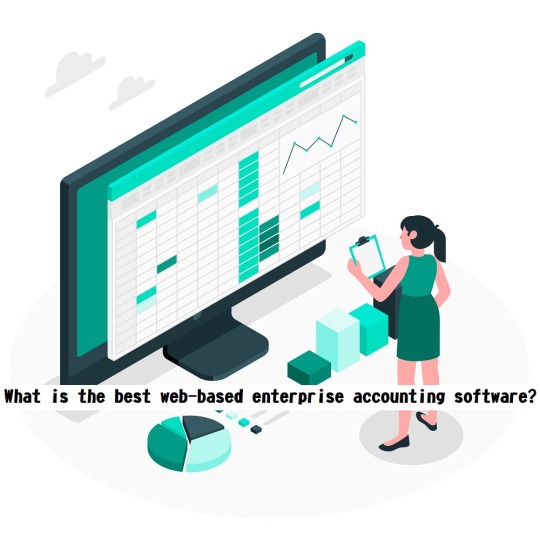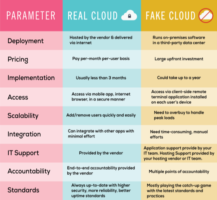#cloud based ERP
Explore tagged Tumblr posts
Text
ERP Accounting Software | finance and accounting with ERP | ERP financial solution
PiERP simplifies invoicing, ensuring bills are sent on time and payments come in smoothly. With PiERP, businesses can also manage credit and collections effortlessly, building stronger relationships with customers. Plus, real-time insights into money owed help track performance and make smart decisions. On the other hand, PiERP's payables management keeps track of what the business owes. It speeds up invoice approvals, fosters good relationships with suppliers, and ensures payments are made accurately and on time. With PiERP, businesses can plan their finances strategically and stay financially stable. For more details, visit: https://pierp.software/finance-accounting
0 notes
Text

#Cloud Based ERPs#Cloud Based ERP Software#Cloud Based ERP Solutions#Cloud Based ERP#Cloud Based Enterprise Resource Planning#Cloud ERP#cloud enterprise resource planning#Cloud ERP Software#Cloud ERP Solutions
1 note
·
View note
Text
Vedmarg: School Management Software in Parbhani, Maharashtra

Education plays a pivotal role in shaping young minds and preparing them for the future. In today's tech-driven world, schools must embrace innovative solutions to streamline administration, enhance communication, and foster a dynamic learning environment. The landscape of education has undergone a transformative shift, with technology emerging as a powerful tool to enhance teaching and learning experiences. Vedmarg, a pioneering School Management Software in Parbhani, Maharashtra, is at the forefront of this revolution, bridging the gap between traditional educational practices and the dynamism of the digital age.
Transforming the Educational Landscape: Features of Vedmarg School Management Software
Vedmarg a comprehensive School Management Software in Parbhani, Maharashtra caters to the diverse needs of schools in the city and beyond. From streamlining administrative processes to fostering effective communication between teachers, parents, and students, Vedmarg offers a plethora of features that make school life easier and more efficient.
Streamlined Administration: Say goodbye to mountains of paperwork and endless hours spent on administrative tasks. Vedmarg ERP System automates fee management, attendance tracking, exam scheduling, and report generation, freeing up valuable time for teachers and staff to focus on what truly matters: student learning.
Enhanced Communication: Effective communication is the cornerstone of a successful learning environment. Vedmarg's platform facilitates seamless communication between teachers, parents, and students through instant messaging, online announcements, and progress reports. Parents can stay informed about their child's academic performance and school activities, while teachers can provide personalized feedback and support.
Engaging Learning: Learning is no longer confined to textbooks and blackboards. Vedmarg's interactive learning tools, such as online quizzes, gamified learning modules, and virtual classrooms, make learning fun, engaging, and effective. Students can explore concepts at their own pace, receive immediate feedback, and collaborate with classmates in a virtual environment.
Data-driven Insights: Vedmarg School ERP Software empowers schools with the power of data. The software provides comprehensive reports and analytics that track student progress, identify areas of strength and weakness, and inform instructional decisions. This data-driven approach allows schools to personalize learning experiences and ensure every student reaches their full potential.
Beyond the Software: Vedmarg's Commitment to Education
Vedmarg School Management ERP Software's commitment to education extends far beyond the software itself. The company regularly conducts workshops and training sessions for teachers and staff, helping them integrate technology into their teaching methods and leverage the full potential of the platform. Additionally, Vedmarg Cloud-based ERP Software actively collaborates with schools in Parbhani to develop customized solutions that address their unique needs and challenges.
Conclusion: A Beacon of Innovation in Educational Landscape
Vedmarg School Management Software in Parbhani, Maharashtra has revolutionized the way schools operate. By seamlessly blending tradition and technology, Vedmarg ERP Software has created a platform that empowers schools to provide their students with a holistic and enriching learning experience. As Parbhani continues to evolve as a center of education, Vedmarg is poised to remain at the forefront of this transformation, paving the way for a brighter future for generations to come.
#cloud based erp#school erp system#school management software#erp systems#cloud based software#cloud based school management software#cloud based erp software#school erp software
0 notes
Text
An efficient cloud-based ERP system can essentially help conduct a thorough assessment of a process manufacturing organization's specific needs, budget constraints, and long-term goals. It can typically manage the production of goods through formulas or recipes, such as chemicals, food, pharmaceuticals, and beverages.
0 notes
Text
Revolutionizing Construction Management with Cloud-Based ERP Software
In the fast-paced world of construction, efficiency is key, and staying ahead requires cutting-edge solutions. Enter cloud-based ERP software, a game-changer for construction project management.
Construction ERP software seamlessly integrates essential processes, providing a centralized hub for project planning, resource management, and communication. Cloud-based ERP solutions take this a step further, offering flexibility and accessibility from anywhere with an internet connection.
Cloud-based ERP software streamlines project workflows, enhancing collaboration among teams. Real-time updates ensure that everyone is on the same page, minimizing delays and errors. This digital transformation empowers construction companies to adapt swiftly to changes and make informed decisions promptly.
The benefits of cloud-based ERP solutions extend beyond the construction site. With data securely stored in the cloud, project managers can access critical information anytime, anywhere. This accessibility fosters better communication, accelerates decision-making, and ultimately boosts productivity.
Investing in TYASuite cloud-based ERP software is a strategic move towards a more agile and responsive construction management approach. As the industry evolves, embracing cloud ERP solutions ensures that construction companies can thrive in an increasingly competitive landscape. It's not just software, it's a construction revolution.
0 notes
Text
Overcoming Challenges in Cloud ERP Solution Adoption

The adoption of Cloud Enterprise Resource Planning (ERP) solutions has become a fundamental strategic decision for businesses aiming to stay competitive and efficient in today's fast-paced digital landscape. Cloud ERP systems offer numerous benefits, including cost-effectiveness, scalability, and accessibility, but they are not without their challenges. This article will explore some of the common obstacles that organizations face when adopting cloud ERP solutions and provide insights on how your business can overcome them.
1. Resistance to Change:
One of the most significant challenges in implementing cloud ERP is the resistance to change from employees. Transitioning to a new system can be met with skepticism and reluctance, as employees may fear the disruption it could bring to their daily tasks. To overcome this challenge, businesses can invest in change management strategies, ensuring employees are well-informed about the benefits of the new system, offering comprehensive training programs, and actively involving employees in the decision-making process. Communicating the positive impact on their roles and the organization as a whole can help ease this transition.
2. Data Migration and Integration:
Migrating data from legacy systems and integrating it with the new cloud ERP solution can be complex and daunting. The challenge often arises from disparate data formats, inconsistent data quality, and the need to map data from the old system to the new one. To overcome this, organizations should perform thorough data cleansing and mapping exercises prior to the migration. Partnering with experienced cloud ERP vendors and consultants who specialize in data migration can also simplify the process and reduce the risk of data loss or errors.
3. Customization and Configuration:
While cloud ERP solutions offer many out-of-the-box features, some businesses require specific customizations to align the system with their unique processes. The challenge here lies in finding the right balance between customization and standardization. Over-customization can lead to increased implementation costs, longer project timelines, and difficulties in software maintenance and upgrades. To address this challenge, businesses should thoroughly evaluate their processes and identify areas where customization is genuinely necessary. They should also consult with experienced implementation partners to strike the right balance.
4. Security and Compliance Concerns:
Security and compliance are paramount in the adoption of cloud ERP solutions. Companies must trust that their data will be secure in the cloud and that the solution will adhere to industry-specific regulations. To address this challenge, businesses should conduct a thorough security assessment of their chosen cloud ERP vendor, ensure compliance with relevant standards, and implement additional security measures such as encryption and access controls. Regular audits and monitoring are also essential to maintain data integrity and compliance.
5. Implementation Costs:
Cloud ERP solution adoption can require a significant upfront investment, especially for smaller businesses. Cost overruns can be a major challenge. To mitigate this, organizations should perform a comprehensive cost-benefit analysis and create a realistic budget that accounts for both implementation and ongoing operational costs. Seeking competitive pricing from ERP vendors and considering phased implementation to spread costs over time can also help alleviate this challenge.
6. User Training and Support:
Inadequate user training and support can hinder the successful adoption of cloud ERP solutions. Users need to be proficient with the new system to realize its full potential. To address this challenge, organizations should develop a robust training program, provide ongoing support, and ensure that users have access to resources such as training materials and help desks. Continuous feedback and training updates can also help users adapt and become proficient.
7. Performance and Reliability:
The performance and reliability of a cloud ERP solution can be a concern, especially during peak usage periods. To overcome this challenge, businesses should select a reputable cloud ERP provider with a track record of reliability and performance. They should also monitor system performance regularly, implement redundancy and failover measures, and have a disaster recovery plan in place.
While cloud ERP solutions offer numerous benefits, the adoption process is not without its challenges. By addressing these challenges proactively through change management, data migration, and integration strategies, careful customization decisions, robust security and compliance measures, cost management, effective training and support, and ensuring performance and reliability, organizations can successfully implement cloud ERP solutions and reap the rewards of improved efficiency, scalability, and competitiveness in today's digital age.
0 notes
Text
Top Points To Consider Before Choosing Any ERP!
ProERP By Google Cloud Please email us on [email protected] or call /drop a message on: 9359453615 For More Information Visit us @ https://proerp.in

#erpsoftwares#clouderp#erpsolutions#proerp#top erp systems#erp system#cloud based erp#cloud erp solutions#cloud computing#erp software providers#cloud erp
0 notes
Text
What is the best web-based enterprise accounting software?

In the fast-paced and ever-evolving landscape of business, staying on top of your finances is crucial. As enterprises expand their operations, managing accounts efficiently becomes a daunting task. Thankfully, with the advent of technology, businesses now have access to a plethora of web-based enterprise accounting software options to streamline their financial processes. In this comprehensive guide, we will explore the ins and outs of web-based enterprise accounting software, helping you make an informed decision on the best solution for your business needs.
Understanding Web-Based Enterprise Accounting Software
Web-based enterprise accounting software, often referred to as cloud accounting software, is a digital solution that allows businesses to manage their financial activities online. Unlike traditional accounting systems that rely on on-premise software, web-based accounting tools operate in the cloud, offering users the flexibility to access their financial data from anywhere with an internet connection.
Advantages of Web-Based Enterprise Accounting Software
1. Accessibility
One of the primary advantages of web-based accounting software is accessibility. With data stored securely in the cloud, users can access their financial information anytime, anywhere. This proves especially beneficial for enterprises with multiple locations or remote teams, fostering collaboration and efficiency.
2. Cost Efficiency
Web-based accounting solutions often follow a subscription-based model, eliminating the need for costly upfront investments in software and hardware. This cost-effective approach makes it easier for businesses to scale their accounting infrastructure according to their needs without breaking the bank.
3. Real-Time Updates
In the dynamic world of business, real-time data is invaluable. Web-based accounting software provides instant updates, ensuring that users have access to the most recent financial information. This feature is crucial for making informed decisions and adapting to market changes promptly.
4. Automatic Updates and Maintenance
Gone are the days of manual software updates and maintenance. With web-based accounting solutions, updates are automatic, and maintenance is handled by the service provider. This frees up valuable time for businesses to focus on core operations rather than managing software updates.
Features to Look for in Web-Based Enterprise Accounting Software
1. User-Friendly Interface
A user-friendly interface is essential for ensuring that your team can navigate the software seamlessly. Look for solutions with intuitive dashboards and easy-to-understand features to minimize the learning curve for your staff.
2. Scalability
As your enterprise grows, so do your accounting needs. Choose a web-based accounting solution that can scale with your business, accommodating increased transaction volumes and additional users without compromising performance.
3. Integration Capabilities
Efficient accounting doesn't happen in isolation. Ensure that the web-based accounting software you choose integrates seamlessly with other essential business tools, such as CRM systems, project management software, and e-commerce platforms.
4. Security
The security of your financial data should be a top priority. Opt for web-based accounting software that employs robust encryption protocols and follows industry best practices for data protection. Additionally, check for features such as multi-factor authentication to add an extra layer of security.
Top Contenders in the Web-Based Enterprise Accounting Software Market
1. MargBooks
MargBooks Online is a India's popular online accounting solution known for its user-friendly interface and robust features. It offers a range of plans to suit businesses of all sizes and provides tools for invoicing, expense tracking, and financial reporting.
2. Xero
Xero is another cloud accounting software that caters to small and medium-sized enterprises. With features like bank reconciliation, inventory management, and payroll integration, Xero is a comprehensive solution for businesses looking to streamline their financial processes.
3. NetSuite
NetSuite, owned by Oracle, is a cloud-based ERP (Enterprise Resource Planning) solution that includes robust accounting functionalities. It is suitable for larger enterprises with complex financial needs and offers features such as financial planning, revenue recognition, and multi-currency support.
4. Zoho Books
Zoho Books is part of the Zoho suite of business applications and is designed for small and medium-sized enterprises. It provides features such as automated workflows, project billing, and collaborative client portals, making it a versatile choice for businesses with diverse needs.
Making the Right Choice for Your Business
Choosing the best web-based enterprise accounting software for your business requires careful consideration of your specific needs and objectives. Here are some steps to guide you through the decision-making process:
1. Assess Your Business Requirements
Start by identifying your business's specific accounting requirements. Consider factors such as the number of users, the complexity of your financial transactions, and the need for integration with other business applications.
2. Set a Budget
Determine a realistic budget for your accounting software. While web-based solutions often offer cost savings compared to traditional software, it's essential to choose a solution that aligns with your financial resources.
3. Explore Free Trials
Many web-based accounting software providers offer free trials of their platforms. Take advantage of these trials to explore the features and functionalities of different solutions before making a commitment.
4. Seek Recommendations and Reviews
Consult with other businesses in your industry or network to gather recommendations and insights. Additionally, read reviews from reputable sources to gain a better understanding of the user experiences with different accounting software options.
The Evolution of Web-Based Enterprise Accounting Software
As technology continues to advance, so does the landscape of web-based enterprise accounting software. The evolution of these platforms is driven by the ever-changing needs of businesses and the ongoing developments in cloud technology. Let's delve deeper into the evolving trends shaping the future of web-based accounting solutions.
1. Artificial Intelligence (AI) and Automation
The integration of artificial intelligence and automation is revolutionizing how businesses handle their financial processes. Modern web-based accounting software is incorporating AI algorithms to automate repetitive tasks, such as data entry and invoice categorization. This not only increases efficiency but also minimizes the risk of human error.
2. Enhanced Data Analytics
In the age of big data, the ability to derive meaningful insights from financial data is paramount. Advanced web-based accounting solutions are now equipped with powerful data analytics tools. These tools help businesses analyze trends, forecast future financial scenarios, and make data-driven decisions.
3. Mobile Accessibility
The shift towards mobile accessibility is a notable trend in web-based enterprise accounting software. Businesses are increasingly relying on mobile devices for day-to-day operations, and accounting software providers are responding by offering mobile-friendly applications. This allows users to manage their finances on the go, providing unparalleled flexibility.
4. Integration with E-Commerce Platforms
As e-commerce continues to thrive, businesses are looking for accounting solutions that seamlessly integrate with their online sales platforms. Modern web-based accounting software often includes features tailored for e-commerce, such as automated transaction reconciliation with online sales channels and inventory management.
5. Blockchain Technology
Blockchain technology is making waves in various industries, and accounting is no exception. Some web-based accounting solutions are exploring the integration of blockchain for enhanced security and transparency in financial transactions. This could revolutionize how businesses handle aspects like auditing and transaction verification.
Common Challenges and How to Overcome Them
While web-based enterprise accounting software offers numerous benefits, it's important to be aware of potential challenges and how to overcome them. Here are some common issues businesses may face:
1. Security Concerns
The sensitive nature of financial data raises concerns about security in the cloud. To address this, choose a web-based accounting solution that employs robust encryption protocols and complies with industry security standards. Additionally, educate your team about best practices for secure online behavior.
2. Connectivity Issues
Reliable internet connectivity is crucial for accessing web-based accounting software. In regions with unstable internet connections, businesses may face challenges in real-time collaboration and data accessibility. Consider implementing backup solutions for offline access or explore accounting software with offline capabilities.
3. Customization Needs
Every business has unique accounting requirements. Some businesses may find that certain web-based accounting solutions lack the level of customization they need. In such cases, explore platforms that offer extensive customization options or consider integrating additional specialized accounting tools.
4. Data Ownership and Control
Understanding the terms of service and data ownership is essential when using web-based accounting software. Ensure that the chosen platform allows you to retain control over your financial data and provides mechanisms for data export in case of migration to a different system.
Conclusion: Making the Right Choice for Long-Term Success
In the fast-paced world of business, the right web-based enterprise accounting software can be a game-changer. Whether you're a small startup or a large enterprise, the key is to stay informed about the latest advancements in accounting technology and align your choice with the long-term goals of your business.
As you navigate the vast landscape of web-based accounting solutions, remember that the best choice is the one that seamlessly integrates with your business processes, enhances efficiency, and adapts to the evolving needs of your enterprise. If you have any specific questions or need further guidance on a particular aspect of web-based accounting software, feel free to ask for more information!
Also read- Online billing and accounting software to manage your business
#Web-based accounting#Cloud software#Financial management#Enterprise solutions#accounting#software#billing#online billing software#technology#programming#erp#tech#drawings#illlustration#artwork#art style#sketchy#art#aspec#aromantic asexual#arospec#acespec#aroace#aro#bg3#astarion#shadowheart#gale dekarios#gale of waterdeep#karlach
2 notes
·
View notes
Text
The Rise of EdTech in Indian Universities: A Deep Dive.
In recent years, Ed-Tech has transformed the landscape of education in India. Indian universities have increasingly adopted digital technologies to enhance the overall educational experience. This shift includes the implementation of interactive educational portals that facilitate easy access to course materials, assignments, and resources, allowing students to learn at their own pace. Additionally, the introduction of smart classrooms, equipped with advanced technology such as multimedia projectors and collaborative tools, has fostered a more engaging and participatory learning environment. These innovations not only improve teaching and learning outcomes but also encourage greater student interaction and collaboration, ultimately preparing students to thrive in a digital world.
EdTech: What is it?
EdTech is simply the use of technology to support learning. Digital content, online assessments, online classrooms, learning management systems (LMS), and AI-powered tools for tracking student performance are a few examples.
The rise in Indian universities-
Some of the reasons are-
1. Improved Access to Education-
Students who are far away can now join classes online and have access to learning materials at any point in time, anywhere.
2. Flexible Learning
With recorded lectures, online study notes, and interactive sessions, students are able to learn at their own speed.
3. Improved work flow-
Administrative tasks such as attendance, fee payment, assignment submission, and grading are enhance with digital portal.
4. Enhanced student engagement-
EdTech instruments such as quizzes, live voting, and gamified materials make learning more enjoyable and engaging.
5. Pandemic Support
COVID-19 forced universities to go online. Several institutions invested in EdTech in order to conduct classes online
6. Popular EdTech Tools in Indian Colleges-
Learning Management Systems (LMS) such as Moodle, Canvas, or GU iCloud
Video Conferencing Tools such as Zoom, Google Meet, and Microsoft Teams
Online Exam Portals with remote proctoring capabilities
AI and Analytics to monitor student performance and tailor learning
Virtual Labs for science and engineering students
Real Impact: Take for Students and teachers-
Students enjoy the freedom EdTech provides, particularly for revision and autonomous learning. Teachers like the convenience of managing lectures, sharing study materials, and keeping in touch with students, even outside class.
Challenges that will come-
Poor connectivity with the internet in rural areas
Inadequate digital skills among some teachers and students
High setup cost of putting EdTech in place
But with continuous government support and greater awareness, these challenges are being addressed in stages.
Future lookout-
Universities are now designing hybrid model. Technologies such as Artificial Intelligence, Augmented Reality (AR), and Machine Learning will continue to alter the way students learn and the way universities instruct.
Conclusion
The adoption of EdTech in Indian universities will be a high moment in the history of education. It's not merely a matter of going digital; it's about creating more inclusive, interactive, and impactful learning. As technology advances, so shall the process of learning and development.
#GU iCloud login#Galgotias University ERP#GU iCloud student portal#Galgotias LMS#Digital university management#cloud-based ERP for education#university automation tools#online learning Galgotias#student dashboard GU#Galgotias iCloud features.
0 notes
Text
Podcast: Benefits of Cloud-based ERP Software for Businesses
Cloud-based ERP software offers a plethora of benefits for businesses. Imagine accessing your data, managing operations, and collaborating with teams from anywhere, anytime. Cloud ERP cuts costs by eliminating upfront hardware and software expenses. It also boasts automatic updates, enhanced security, and seamless scalability to fit your growing needs. See more benefits of Cloud ERP Software System by MindRich Technologies.
#Cloud Based ERPs#Cloud Based ERP Software#Cloud Based ERP Solutions#Cloud Based ERP#Cloud Based Enterprise Resource Planning#Cloud ERP#cloud enterprise resource planning#Cloud ERP Software#Cloud ERP Solutions#odoo erp#odoo 17#odoo erp software#mindrich technologies#SoundCloud
0 notes
Text
Best Cloud-based School Management Software in Kanpur, Uttar Pradesh

In the midst of the transformative tides of Indian education, technology has become an indispensable vessel for streamlining processes and enriching learning experiences. Cloud-based School Management Software in Kanpur, Uttar Pradesh is proving to be a critical factor in this revolution, empowering institutions to optimize operations and foster improved communication between stakeholders. In Kanpur, a vibrant educational hub within Uttar Pradesh, Vedmarg has emerged as a leading force in this innovative realm, offering a comprehensive cloud-based ERP system poised to elevate school management to new heights.
Unveiling Vedmarg: A Robust Ecosystem for Educational Institutions
Vedmarg a Cloud-based School Management Software in Kanpur, Uttar Pradesh transcends the confines of software, transforming into a holistic ecosystem meticulously designed to address every facet of school administration. With over 100 modules encompassing diverse functionalities, it seamlessly integrates student management, fee collection, attendance tracking, and academic performance analysis into a user-friendly, intuitive interface. The platform boasts an array of impressive features, including:
Centralized Data Hub: Say goodbye to cumbersome paperwork and embrace streamlined recordkeeping. Vedmarg's secure, cloud-based repository serves as a centralized hub for student, staff, and academic information, readily accessible from any device.
Enhanced Communication Channels: Bridging the gap between teachers, parents, and students is fundamental to a thriving learning environment. Vedmarg facilitates seamless communication with integrated messaging, real-time notifications, and comprehensive progress reports, fostering greater engagement and collaboration.
Automated Workflows: Relieve educators of the burden of repetitive tasks. Vedmarg automates routine processes like fee reminders, report generation, and attendance marking, freeing up valuable time for personalized learning and student interaction.
Transparency and Accountability: Foster trust and open communication by providing parents with real-time insights into their child's academic progress and school activities. Vedmarg's data-driven approach empowers informed decision-making and collaborative engagement.
Beyond Features: The Distinct Advantage of Vedmarg
What sets Vedmarg ERP Software apart in the competitive landscape of Kanpur's school management software market is its commitment to exceeding mere functionality. The platform offers distinct advantages that cater to the specific needs of educational institutions:
Customization: No one-size-fits-all solution exists. Vedmarg understands this, offering customizable features and workflows that can be tailored to the unique requirements of each school, ensuring a perfect fit for every institution.
Scalability: Growth should be seamless. Vedmarg effortlessly adapts to increasing student and staff populations, scaling its capabilities without compromising performance, making it a future-proof investment.
Unwavering Data Security: Sensitive school data deserves robust protection. Vedmarg prioritizes data security with advanced encryption and access control measures, providing institutions and parents with unwavering peace of mind.
Cost-Effective and Accessible: Cloud-based technology eliminates the need for expensive hardware investments, making Vedmarg a cost-effective solution for schools of all sizes, democratizing access to advanced educational technology.
Dedicated Support: Unwavering support is vital. Vedmarg prioritizes customer satisfaction with a team of trained professionals readily available to assist schools and address any queries, ensuring a smooth and successful implementation.
Propelling Educational Institutions into the Future
Vedmarg School ERP Software impact transcends efficiency and automation. By fostering stronger communication, facilitating transparency, and providing access to data-driven insights, the platform empowers schools to create a more engaging and personalized learning environment for students. In the city, Vedmarg School Management Software is spearheading this transformation, equipping institutions with the tools and resources necessary to compete in the evolving landscape of Indian education.
Conclusion
With its intuitive interface, robust features, and unwavering commitment to excellence, Vedmarg Cloud-based School Management Software in Kanpur, Uttar Pradesh is poised to revolutionize school management. As more institutions embrace this innovative platform, the city can expect to witness a new era of efficient, streamlined, and student-centric education. The future of education is cloud-based, and Vedmarg ERP solution is at the forefront, propelling schools towards a brighter, more digital tomorrow.
#cloud based erp#school erp system#school management software#cloud based erp software#erp systems#cloud based school management software
0 notes
Text
Why Cloud-Based ERP Systems are the Future

In an era defined by agility, real-time decision-making, and borderless collaboration, legacy systems are rapidly giving way to intelligent, adaptive digital solutions. Among these, Cloud-Based ERP systems have emerged as the linchpin of modern enterprise architecture ushering in a new age of efficiency, scalability, and competitive advantage.
Once a domain ruled by on-premises giants, Enterprise Resource Planning (ERP) has undergone a radical evolution. Today, cloud ERP solutions are reshaping how businesses operate, streamline workflows, and adapt to rapidly shifting market demands.
This definitive guide will explore why cloud-based ERP systems are not just a trend, but the inevitable future of enterprise technology.
What is a Cloud-Based ERP System?
A cloud-based ERP system is an enterprise resource planning solution hosted on a cloud computing platform, rather than on-premises infrastructure. It offers real-time access to business-critical applications — spanning finance, HR, supply chain, CRM, and more via the internet.
This architecture facilitates remote accessibility, automatic updates, seamless integrations, and lower total cost of ownership compared to traditional ERP systems.
The Strategic Shift from On-Premises to Cloud ERP
The pivot to cloud ERP is not merely technological, it’s a strategic imperative. Legacy ERP systems are often plagued by:
High upfront capital expenditure
Long deployment cycles
Limited scalability
Tedious maintenance
Difficult integrations
In contrast, cloud ERP solutions offer a nimble, secure, and future-ready alternative that aligns with the demands of today’s hybrid and globalized work environments.
Key Advantages of Cloud-Based ERP Systems
1.Scalability that Grows with You
Cloud ERP systems are inherently scalable, allowing businesses to add users, modules, and resources as they expand without disrupting operations.
2.Lower Total Cost of Ownership (TCO)
With cloud ERP, there’s no need to invest in expensive servers or IT infrastructure. Subscription-based pricing models (SaaS) replace capital costs with predictable operating expenses.
3.Real-Time Data and Analytics
Modern cloud ERP platforms offer real-time dashboards, KPIs, and predictive analytics, empowering data-driven decisions at every level of the organization.
4.Faster Implementation and Updates
Gone are the days of year-long ERP rollouts. Cloud-based ERP systems can be implemented in weeks or months, with automatic updates that reduce IT overhead.
5.Remote Accessibility and Mobility
Cloud ERP enables employees to work securely from any location, on any device supporting remote work, field services, and multi-site operations.
6.Enhanced Collaboration Across Departments
A centralised cloud ERP ensures that all departments from finance and procurement to sales and HR are aligned through shared data and workflows.
7.Seamless Integration with Third-Party Tools
Cloud ERP systems are built for interoperability. From eCommerce and CRM to logistics and IoT, integrations are faster and less complex.
8.Superior Security and Compliance
Contrary to outdated fears, cloud ERP systems often surpass on-premises solutions in cybersecurity. Providers invest heavily in encryption, backups, compliance, and disaster recovery.
9.AI and Automation Capabilities
The most advanced cloud ERP platforms harness AI, machine learning, and robotic process automation (RPA) to streamline workflows and predict trends.
10.Sustainability and Energy Efficiency
Hosting ERP systems in the cloud reduces carbon footprints by eliminating energy-intensive on-site hardware, aligning with green IT initiatives.
Industry Adoption: Cloud ERP Use Cases by Sector
Manufacturing
Cloud ERP optimises supply chain visibility, production planning, and inventory control across distributed plants and global networks.
Retail & eCommerce
From real-time order tracking to customer insights and omnichannel integration, ERP in the cloud is the retail backbone.
Healthcare
Enables better patient care through streamlined administration, real-time inventory, billing, and HIPAA-compliant data handling.
Finance & Accounting
Drives financial forecasting, tax compliance, and real-time consolidation for multi-entity operations.
Professional Services
Supports time tracking, resource planning, client billing, and project management with cloud agility.
Cloud ERP and Cybersecurity: Dispelling the Myths
Security remains a common concern, yet modern cloud ERP providers leverage:
End-to-end encryption
Multi-factor authentication (MFA)
Role-based access control (RBAC)
Compliance with ISO 27001, SOC 2, and GDPR
The Future Trends in Cloud ERP
Multi-Cloud and Hybrid ERP Architectures
Organisations are increasingly adopting hybrid and multi-cloud ERP deployments to achieve both flexibility and regulatory compliance.
AI-Powered Predictive Analytics
ERP systems will evolve to anticipate needs from demand forecasting to dynamic pricing and resource allocation.
Citizen Development and Low-Code Platforms
Business users will gain the power to customise ERP workflows without writing code, reducing reliance on developers.
ERP Gamification and UX Enhancements
Modern ERP UIs are becoming more intuitive, engaging, and personalised, enhancing user adoption and satisfaction.
Embedded RPA and Intelligent Automation
Advanced ERP platforms are automating manual processes like invoicing, reconciliations, and procurement, freeing up time for innovation.
Choosing the Right Cloud ERP Vendor: A Checklist
Industry Fit– Does the ERP cater to your vertical’s nuances?
Scalability– Can it support your growth roadmap?
Integration Capabilities– Does it play well with your existing tools?
Security & Compliance– Are standards and regulations met?
Total Cost of Ownership (TCO)– Beyond license fees, consider training, support, and upgrades.
User Experience– A clean, modern UI boosts adoption.
Support & Community — Evaluate documentation, support SLAs, and active user forums.
Final Thoughts: Why the Cloud ERP Future is Now
In a digital economy where change is the only constant, businesses need systems that are flexible, intelligent, and future proof. Cloud-based ERP software checks all the boxes.
It’s not just a technological upgrade — it’s a strategic leap into a smarter, faster, and more connected enterprise landscape.
Cloud ERP is not the future; it is the present. And it’s reshaping the future as we speak.
0 notes
Text
Embrace the Future of ERP with Next-Generation Cloud Solutions
In the rapidly evolving landscape of business technology, embracing the future of ERP is synonymous with adopting cutting-edge solutions. Enter TYASuite cloud-based ERP software – a game-changer for businesses seeking efficiency, scalability, and innovation.
Cloud-based ERP, often referred to as cloud ERP, is revolutionizing traditional business management systems. The beauty lies in its flexibility and accessibility, allowing businesses to streamline operations from anywhere in the world. This marks a departure from the constraints of on-premises solutions, unlocking new possibilities for collaboration and productivity.
Today's competitive market demands agility, and cloud ERP solutions deliver exactly that. Seamlessly integrating processes across departments, cloud ERP ensures real-time data access and insights, empowering informed decision-making. This accessibility fosters collaboration, breaking down silos and enhancing overall organizational efficiency.
The advantages extend beyond accessibility. Cloud ERP solutions offer cost-effective scalability, eliminating the need for hefty upfront investments in hardware. This scalability ensures that the system grows with your business, adapting to evolving needs effortlessly.
The future of ERP is undeniably intertwined with the cloud. By embracing cloud-based ERP solutions, businesses position themselves at the forefront of innovation, ready to navigate the dynamic landscape of the digital era. Stay ahead, stay agile – embrace the future with cloud ERP.
0 notes
Text
Cloud-Based ERP Systems | Elite Mindz – Complete Business Management Solutions
Elite Mindz, the best software development company, offers cutting-edge Cloud-Based ERP Systems designed to streamline your business operations. Whether you're a small business or a large enterprise, our ERP software helps automate and integrate key processes like finance, inventory, human resources, sales, and customer service — all in one centralized platform.
Our Cloud-Based ERP solutions provide unmatched flexibility, allowing you to access your data anytime, anywhere. With real-time reporting and smart analytics, you can make data-driven decisions that boost productivity and growth. Elite Mindz's ERP software also ensures seamless integration with PROCUREMENT SOFTWARE and CRM systems, giving you complete visibility and control over your supply chain and customer relationships.
Call Now:(+91) 9811510021
Read More:https://elitemindz.wixsite.com/software/post/how-erp-software-is-powering-smart-factories-in-2025
0 notes

